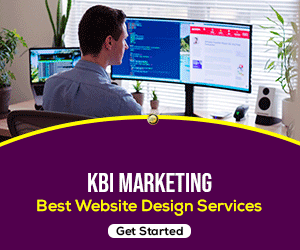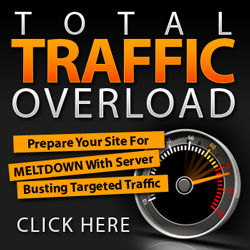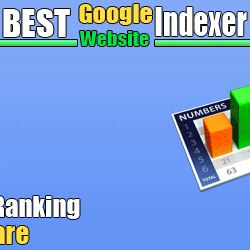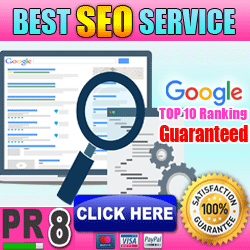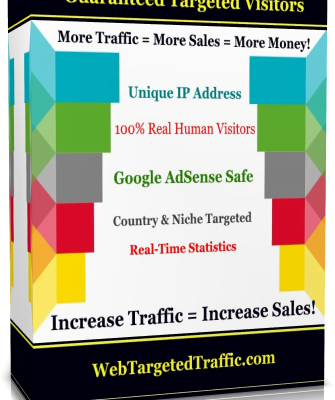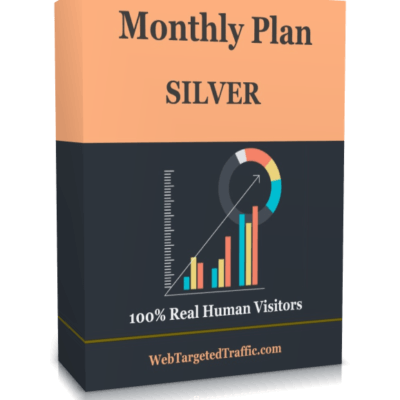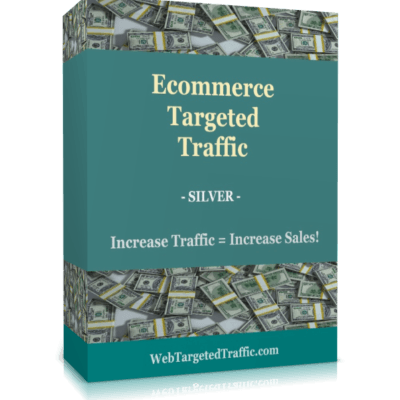For any business, advertising is of utmost need. When any business goes online, the advertising works best to garner a huge amount of web traffic. SEO gives an opportunity for a great deal of free advertising.
A proper SEO makes a website rank in the first page of SERP. And the common belief is people generally scan and review the first two pages of the SERP. Nearly, 74% of consumers use search engines to find local business information. Compared to online marketing, such as PPC, social media marketing, email marketing program, SEO provides fairly good ROI. On a daily basis, nearly 80-90% customers check online reviews before finally purchasing any products.
Table of Contents
What is SEO?
SEO stands for Search Engine Optimization. When you do SEO on your website, we need to keep the following in mind –
- Words that you write: Gone are the days when you just insert the right keywords into sentences and try to make sense of an article. The readers are now much more informed. And as a result, you need to write words that matter because they matter to the search engines like Google, Bing. You need to use keywords but not in a way that comes in the way of consuming content.
- The titles you write: Even if we don’t see the title when we get the search results, title matters a lot for the search engines. Search engines pay a lot of attention to the search titles because these titles tell the search engines what the page is all about.
- The links that link your website to another website: If you have links from authority websites, you would rank higher and at the same time, search engines will value those websites more whenever anyone searches for results.
- The words that you use in links: This is important since if you use links for the words “mattresses” and link to a vendor that sells mattresses, whenever anyone would search for “mattresses”, that vendor would be given preference in the search engine.
- Building a great reputation: If you constantly create new, valuable content for your readers to which they can engage, search engines will rank your website higher.
How does SEO work?
Search engine are not humans but the software that crawls the web page content. So, not like humans search engines are text-driven. They complete a number of activities that bring search results – crawling, scanning and storing (or index), courses of action, measuring pertinence, and recovering. The distinction with an excellence count is that you’re calculating components of design, rather than actions of an individual. For example, some of the elements that are known to build up a quality score are as follows:
- Website names and URLs
- Page content
- Meta tags
- Characteristics of Link
- Usability and accessibility
- Page design
Let’s see how this whole cycle works:
- Crawling: Every search engine has software, known as Crawler or Spider (in case of Google it is Googlebot), that crawls the webpage content. It is not possible for a crawler to see daily if any new page appeared or any existing page is updated, some crawlers may not visit a webpage for a month or two. In this connection, it should be important to remember what all a search engine can crawl: it cannot crawl image, Flash Movies, JavaScript, Frames, Password protected page, and directories. Therefore, if you have majority of these in your website, it would be better to run a keyword simulator test to see if these are viewable by the spider. Those that are not viewable are not spidered and not indexed or not processed. On the other hand, they will be missing for search engines.
- Indexing: Post-crawling content the Spider stores the indexed page in a giant database from where those can be retrieved upon entering a related search string or keyword. For humans this will not be possible, but for search engine, this is every day’s work. Sometimes, the search engines cannot understand the page content. And for that, you need to correctly optimize the page.
- Search work: With every search request, the search engine processes, i.e., it contrasts the key phrases searched with the pages indexed and stored in its record. More than millions of pages have the same search phrases. So, the search engine is an act of measuring the relevancy of all the pages and matches with what it indexed as per the keywords inserted in the SERP.
- Algorithms: A search algorithm is a diagnostic means that takes a puzzle (when there is a search with a particular keyword), sorts through a record that contains cataloged keywords and the URLs that have relevancy with those keywords, estimates some probable answers, and then reverts pages that have the word or phrase that was looked for, either in the body content or in a URL that directs to the page. Three search algorithms are there – On-site, Off-site, and Whole-site algorithms.
Each type of algorithm definitely looks at different aspects of the webpage, such as Meta tags, title tags, links, keyword density, etc., yet they all are part of a much larger algorithm. That is the reason why same search string generates different results in different search engines having distinct algorithms. And all these search engines (primary, secondary, and targeted) periodically do keep on changing their algorithms, so you must know how to adapt to these changes if you want to stay on the top. This requires sound SEO expertise.
More and more, the use of SEO is becoming important for the overall success of digital marketing. And we would get a very good idea if we carefully watch the changing paradigm of SEO over years. In mid 90’s when very first SEO came into picture, manual submission, the Meta keywords tag, and keyword stuffing were all usual techniques necessary to rank well in the SERP. Then in 2004, for getting web traffic, anchor text associated link bombing, link buying from automated blog comment spam injectors, and creation of inter-linking websites took place. Then in 2011, the social media marketing and vertical search inclusion became the mainstream methods of conducting SEO. The search engine algorithms get updated time after time for the sake of bringing traffic. The tactics used in 2004 are all outdated now as the new call is something else.
Today, so many new memes totally change the way an SEO consultant once worked though the basic understanding remains the same, such as title tags, H1 tags, and everyone’s preferred subject, thanks to Google, links. But many applications that previously were remote to what we used to judge SEO no more are.
- Social Media: Social media marketing is gaining importance because of the increased usage of viral marketing approach through Facebook, LinkedIn, Twitter, Yammer, and Google+. These social networking sites must be in line with the SEO best practices to entirely control SEO potential.
- The more links with a view to ranking higher is not today’s approach: The personal reputation has become a crucial aspect. Old school of link building has some improvisations. The common belief of ranking high in the search results is changing – the content strategies are not the main means, but generating the quality inbound links that stay as a much important SEO element to affect the ranking. The concept of ‘link’ is changing in that respect. The main idea behind the traditional link building to measure all the do-follow links that a website can generate and totally ignore all no-follow links. The practice was to build as many links as possible. That system had drawbacks what some black-hat marketers banked on, and finally Google changed its algorithms, which totally ended the practice of traditional link building practice. This was known as spamming. Even guest-blogging with a sole motive to generate links is also burned down. Guest-blogging really works well if it is to generate new audiences, present yourself as an expert, and engage with your targeted community.
It is called implied linking as there is basically no link to go back to the source site. Brand mentions and online citation must be handled carefully and well-incorporated into the site content; this is done in several forms. In the content, the brand mentions are generally connected to the products or services, and how those are connected to the content is explained. It can be in the comments what is finally implicitly integrated well into the content also. So long as the brand or website name is used, a brand name or citation is created.
- Better judgement in brand authority: Google does not give that much importance to the former practice of traditional link building. A new brand authority will rule in the form of brand mentions.
- There is no manipulation at all: The Anchor texts and links cannot be manipulated now. The black-hat practice of linking to a site that is totally irrelevant to the source site is replaced by the brand mentions or online citations. Once a brand is flawlessly woven in site content, the implied link should point to sites that must be relevant to the source site.
- Influencing the social signals through brand mentions: Brand mentions or online citation is reckoned as an important factor to leverage the social signals for SEO. The links that got generated through social media are no-follow links that do not affect the SERP rankings. But when any source content is shared, commented, tweeted, or cited socially with or even without these implied links, it must funnel to highest rankings. This entire process of back-linking through social media is called social media optimization.
- Online citation is an important factor for local SEO: Local SEO targets potential customers of the small and medium sized enterprises. Citations are always good for local SEO. Here, the use of name, address, and contact number are taken into consideration by Google for a bigger picture.
- Balance between traditional linking and brand mentions: You should not develop a wrong notion that only brand mentions do exist now-a-days, and the traditional linking has become obsolete. There needs to be a balance between these two. An equal importance must be given. Below is a balanced link building strategy between implied and express links:
- Just avoid having a higher ratio in the express links to your brand mention to escape the possible danger of getting spammed that can affect your brand.
- Google likes the practice of visual content that go viral as it is the right way to keep a good ratio of express links to brand mention.
- Guest-blogging can be used to promote the brand.
- Link building strategy needs to be as fair and usual as possible.
- Use every possible avenue to inculcate the brand mentions – social media, guest-blogging, comments, and RSS feeds that can go viral.
- Last but not the least prepare your website thinking about your target audience – what they deserve. Relevant and valuable content must flow in.
- Social media optimization has a new entrant, video optimization: Today’s SEO expert knows how to optimize video content, effectively distribute it, and measure its efficacies in meaningful ways.
- Paid search redefined: A co-optimization plan needs to follow the paid search initiatives with a high degree of group effort with the organic search team for utmost outcomes on both sides of the aisle.
- Use of data: The capability to understand, mine, and use data efficiently to steer strategy and sharing of resources within a restricted budget for highest ROI (return on investment) is another important parameter.
- Miscellaneous factors of modern SEO: The bounce rate, site speed, and very recently, content above the fold are known to be significant factors in the algorithms of the most important search engines. Also, display advertising, including behavioural targeting or retargeted marketing and contextual advertising use the targeted keywords generated in the organic search practices. Most of all, you all need to have a thorough idea on the marketing campaigns and business model, so that you can work in evocative ways.
Why You Need SEO
SEO is important for a variety of reasons relating to your business’ online presence and digital marketing strategy. We’ve provided a few reasons that SEO is crucial for your digital marketing plan in 2019.
SEO Brings Relevant Traffic and Leads
SEO drives traffic to your website. Good SEO will help your website rank on the first page or pages of Google search results for the relevant keywords pertaining to your business. That means that if your business is a construction company in South Jersey, SEO can put you in the first few search results for “construction company in South Jersey” bringing you web traffic interested in your business.
Bringing relevant traffic to your website can improve brand recognition, bring in customer leads, and turn visitors to your site into paying customers. SEO helps you get targeted traffic based on keywords related to your products or services.
Local SEO Increases Visits and Sales
Google has reported that 50% of consumers who performed a local search visited the store that same day. If your business has a brick and mortar location, SEO can lead customers physically to your door.
Optimizing your web presence also means it will be easier for potential customers to find your address, phone number, business hours, and other information that can drive them to your website or store.
Good SEO Can Improve PPC
If you’ve ever used pay per click marketing, you know that quality score affects your campaign. A higher PPC quality score can reduce the cost per click and help your ads perform better, making your advertising more cost effective. Optimizing your website with SEO can improve the quality score of your PPC campaigns, helping these two digital marketing strategies work hand in hand.
SEO works hand in hand with other marketing strategies as well. Pairing SEO and search engine advertising improves the efficacy of your ads and can improve traffic by 50% according to a study from Google. SEO can also improve retargeting efforts and increase brand awareness.
Most Consumers Research Online Before Buying
Various studies have shown that consumers tend to research products and services online before they make a purchase. One study from BazaarVoice showed that roughly 82% of consumers research products online before buying them in person. It also revealed that 45% read online reviews before deciding on a purchase in stores, and 56% read online reviews before purchasing online.
SEO makes it easier for customers to find your business online during the research stage of the buying process. Your business must be easily discoverable on search engines to win these customers. Good SEO will bring in relevant, interested customers to your site and make it more likely that they’ll convert into customers.
SEO Builds Trust and Credibility
How often do you look to page two or three on a Google result page? Probably not very often. If a customer is looking for a business and they don’t appear in the first results for the related keywords, that may send up red flags. They could think that your business is not the best in your field, or that you’re inexperienced or irrelevant.
Ranking your business high in search engine results creates a sense of credibility for customers. Consumers are more likely to trust businesses with great websites that rank high on search engines like Google.
Why SEO May Not Have Worked Before
If you’ve tried SEO before, you may be wary to invest again. Before you swear off SEO entirely, however, consider two factors: time and quality. Time is important for SEO – it doesn’t happen overnight. Good, white hat SEO practices can take at least six months to one year to get your website on the first page for your main keywords.
It can be hard to stay patient while you’re paying for services and not seeing results, but any company that claims to put you on the first page of Google in a week is either lying or cheating the system, which will ultimately hurt your website.
You also may have invested in SEO with a company who was not transparent in their practices. If your previous SEO provider used shady tactics or was unclear about what they were doing with your website and why, you may not have reached your SEO goals. Good SEO takes time, but you will eventually see results. Find a good SEO company that is transparent about their practices and has a proven track record.
Some companies avoid SEO, especially if they’ve tried it before and didn’t see results. There are many misconceptions about SEO among those who don’t fully understand it. Common misconceptions include:
Many of the reasons for these misconceptions has to do with the history of SEO. When SEO first developed, many people used shady SEO tactics, now known as black hat SEO.
Back before SEO was policed by things like Google penalties, businesses were free to use any trick they could think of to get their website ranked high on search engines. Keywords were stuffed into pages, content was either bad or non-existent, and many of the first results on search engine results pages were irrelevant, spam, or both.
SEO has improved since then, and while white hat SEO makes it harder to get your website to the first page of Google, dirty tricks are no longer effective. Now, search engines like Google show the most relevant, quality content first. To successfully achieve SEO, you need a qualified SEO company and a stellar website.
SEO Traffic Buying Made Simple
Our powerful website advertising service connects real visitors to your website according to both geographical locations and targeted interests. The result will be 100% real visitors who are actually interested in learning more information about a website such as yours!
The Guaranteed Targeted Clicks come from REAL people, no fake automated internet traffic. You can rest assured that your ads are being viewed by real customers with real buying power. The Guaranteed Targeted Clicks service features:
- Geo-targeted customers that are interested in what you’re selling.
- Priced from less than $0.04 per click, this is an extremely inexpensive advertising option.
- Ability to send targeted traffic to up to 5 different URLs and allocate desired number of clicks to each URL.
- With an attractive offer and optimized landing page, you can generate hundreds to thousands of leads.
Every day we are able to reach out to very active and social followers who are eager for fresh content.
We are now pleased to offer you a chance to access this large pool of fresh visitors!
In just three easy steps, you can receive over 100,000 visitors to your domain within days.
Follow these easy steps:
1. Choose your Niche & Country
2. Order Traffic
3. Receive visitors within 24 hrs
Our social media visitors can be tracked 100% by Google Analytics, Google webmaster tools and all other major tracking platforms.
Everyone wants more traffic, right?
But more isn’t always better.
The only traffic worth anything is the stuff that converts into sales and profits.
Establish your web presence today with the most affordable marketing packages available on the Internet. In 24 hours or less we can have a steady flow of genuine prospects landing directly on your web site…Guaranteed!
So what are you waiting for? Choose your traffic package today and let us boost your business by sending thousands of real, unique visitors to your website.
The great part about Guaranteed Traffic is that it’s so easy to get started and you can literally start receiving REAL, TARGETED, VISITORS to your site in as little as 5 minutes!





